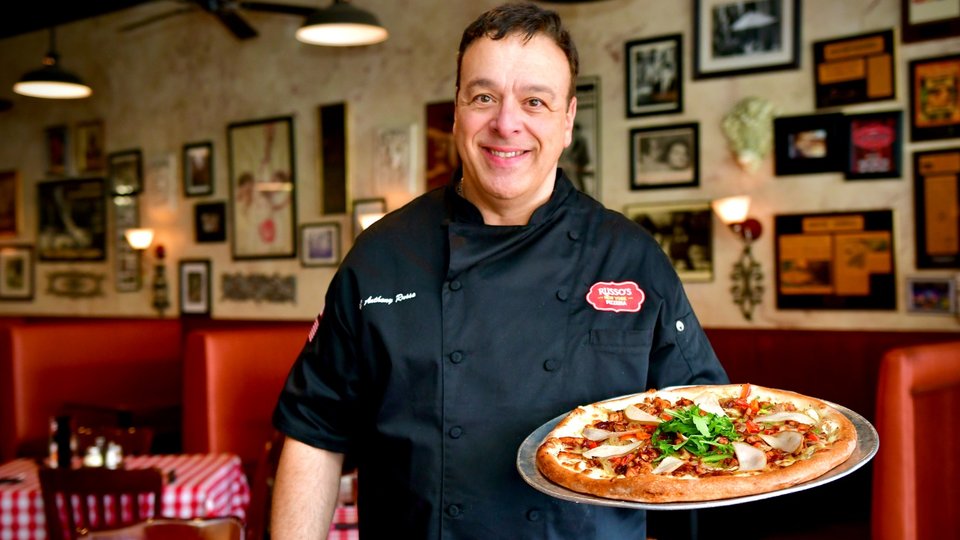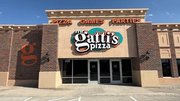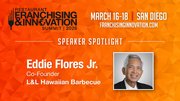Operations
Russo’s New York Pizzeria and Italian Kitchen's experience, craftsmanship make it stand out
Russo's New York Pizzeria and Italian Kitchen has 54 units backed by a long history of experience and craftsmanship. After a rebrand, the company is poised for international growth.

March 25, 2022 by Mandy Wolf Detwiler — Editor, Networld Media Group
Russo's New York Pizzeria and Italian Kitchen, helmed by CEO and Founder Anthony Russo, might just be coming to a town near you soon.
With franchising ramping up, it has become an international brand, with four units in Dubai and four stores in Saudi Arabia. Russo will be exhibiting at a franchise show in London in April in the hopes of franchising Europe. There are more than 50 stores in total, and seven are expected to open in 2022.
The company has a long and storied history. Russo's parents moved to Texas in 1978 and opened Russo's Italian Restaurant, and it was there that Russo cut his teeth on the restaurant industry. Over the years he's owned several concepts, including a 500-square-foot pizzeria at just 18 years old, a trattoria and a café, and, in the mid-1980s, he opened a fine-dining Italian restaurant.
By the late 80s, he'd opened a New York slice shop called New York Pizzeria in a Houston medical center making traditional New York slices and it took off. By 2000, he began franchising.
Three years ago, the company rebranded as Russo's New York Pizzeria and Italian Kitchen.
"We wanted to make it more personal, more chef driven," Russo said in a phone interview. "We wanted to have an identity, a face with the brand, because I'm a chef. New York Pizzeria is just a generic name."
"There's a real Russo behind the brand," he said, "to add my name instead of 'New York Pizzeria.'"
He started the franchise business from scratch without any attorneys to help and learning as he went.
Today, there are 54 locations. Seven are corporate-owned and the rest are franchised. AUV sit at $1.1 million to $1.2 million.
After 10 stores, franchising got a little easier.
"I had to develop recipes, SOPs and training materials," he said. "It took years to develop all those systems that I felt were going to work in a franchise world. I wanted to keep the same family recipes in each store.
Everything is made from scratch, and Russo's doesn't utilize a commissary.
"If we make it a Russo's, it's the same family recipe from 1978," he said. He developed the spice packs and spice mixes for his restaurants, and those remain proprietary. "My cheese, my sauce, my olive oil — all the proprietary stuff — I still use them today that I used 30 years ago. I haven't changed."
The restaurants use Baker's Pride and Woodstone deck ovens to bake their pizzas using handmade dough.
His mother is from Sicily, so when he travels to Italy, he's able to make deals with olive oil farms and the dairy farms to build relationships to import ingredients directly from Europe and the franchisees are able to have the same ingredients at their own stores.
"These are all fine-quality ingredients in which I've built relationships over the years," he said. "We bring them from Italy to the United States. If you select the right ingredients for your pizza and pasta dishes, you're going to have a great product at the end of the day."
Those high-quality, all-natural ingredients makes Russo's a standout against his competition. On top of those ingredients, Russo and his executive team make store visits to ensure compliance with the Russo's way to ensure continuity across the brand.
Franchisees train up to six weeks at the home store, where they learn the difference between cheaper products and the high-end products Russo's uses so the franchisee can be proud of what he or she serves.
"There's not premade ingredients that you buy from your distributor," Russo said. "It's pretty unique products. That's what makes our concept very different in the marketplace and at them same time I'm able to keep my food costs as low as 20 to 21% because I don't have a commissary or copacker to pack our stuff for us and make us pay higher margins. We're making homemade. I don't have to buy frozen doughballs. When I was researching other franchise concepts, they don't make their sauce anymore. They don't make their doughballs anymore. They buy everything premade, and when you buy everything from a third party, they charge a premium for it."
Labor cost sits at about 27%, and it's all in the way they make their items, Russo explained. For example, when he makes lasagna, he makes five trays at the same time, each at 28 servings. Twenty pounds of ground beef will make, well, a lot of hand-rolled meatballs (ground veal is also used in the meatballs).
"It's not hard to cook if you know how to do it," he said. "It's part of the trade secrets that you show your franchisees."
Popular menu items include the pizza made with fresh mozzarella, lasagna, baked ziti, fettuccine Alfredo and chicken parmesan.
Since he grew up in fine dining establishments, he brought over fine dining recipes and translated them for casual and fast-casual set-ups.
Franchisees are able to choose full-service or counter service designs depending on location. Each is built with a custom design, which makes it attractive to franchisees. Full-service designs sit at about 2,200-3,500 square feet, while counter services weigh in at 1,500-2,000 square feet.
"At the end of the day, it's the quality of the food that sets us apart," Russo said.
About Mandy Wolf Detwiler
Mandy Wolf Detwiler is the managing editor at Networld Media Group and the site editor for PizzaMarketplace.com and QSRweb.com. She has more than 20 years’ experience covering food, people and places.
An award-winning print journalist, Mandy brings more than 20 years’ experience to Networld Media Group. She has spent nearly two decades covering the pizza industry, from independent pizzerias to multi-unit chains and every size business in between. Mandy has been featured on the Food Network and has won numerous awards for her coverage of the restaurant industry. She has an insatiable appetite for learning, and can tell you where to find the best slices in the country after spending 15 years traveling and eating pizza for a living.
 ChatGPT
ChatGPT Grok
Grok Perplexity
Perplexity Claude
Claude









